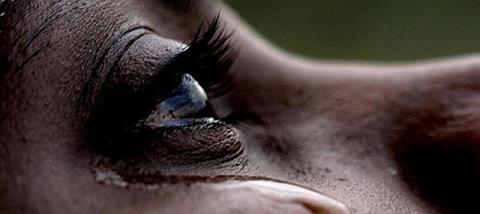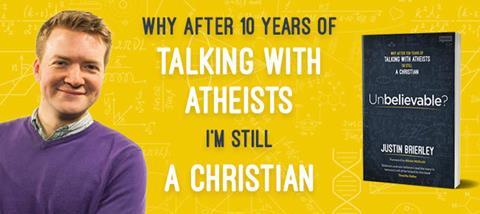
The arrival of our third child Jeremy did not go as smoothly as our first two. Shortly after birth he was diagnosed with an infection which would require a course of antibiotics. The memory of accompanying the doctor to the intensive care unit and watching him attempt to insert a canula needle into the tiny wrist of our baby boy is forever imprinted on my memory.
I was tasked with feeding Jeremy with drops of sugary water as the doctor manipulated his wrist, attempting several times to find a suitable vein that would allow passage for the antibiotics to enter his system and flush out the infection. But no amount of sucrose solution from my plastic syringe could undo the fact that it was a painful business.
How I wished I could explain to my bawling newborn, not yet 24 hours old, that the doctor wasn’t being horrid, he was being helpful. That the pain of the needle was necessary. That this wouldn’t last forever. That I loved him.

Since that day (and with Jeremy now a healthy, boisterous 5-year-old) I have often thought about the way that experience could be compared to the way we are often unable to recognise the purposes that may accompany suffering in our own lives.
We are not able to see the big picture in the way that God sees it. We see only the present pain, the sting of the needle. God is the parent who is with us in our suffering, yet also sees the end from the beginning in ways that we cannot fathom.
Yet, before we present any apologetic on pain, it’s important to remember that people who are actually going through suffering need our love, not our logic. They need someone to sit and weep with them, not to present a three-point sermon on why God allows evil.
So, in presenting three reasons why God may allow suffering to touch our lives, please consider these responses a later step in the pastoral conversation, when the questions often turn to ‘Why would God allow suffering?’
1. BECAUSE GOD WON’T ROB US OF FREE WILL
The problem of suffering is usually posed as a question: ‘If God is all-powerful and all good, why does he allow evil to exist in the world?’
Perhaps the most common response is known as the ‘free will defence’. After all, where does most of the evil in this world come from? Much of it is a direct consequence of our wrong choices as human beings. Yet one of the greatest goods that God has given us is free will – the ability to choose between right and wrong. The problem is that many people choose to do evil rather than good.
Imagine if God intervened at every moment anyone was going to make a wrong choice. Free will would no longer exist. If God waved his magic wand every time we made a bad choice, we would merely be puppets controlled by a puppeteer who overruled our thoughts and actions. Would we want to live in such a world, even if it meant we were insulated from suffering? Could we even speak of concepts such as ‘love’ without it being something freely given, and freely rejected?
The great gift of freedom and love that God has given us comes at the cost of the evil that people freely choose to carry out in the world.
The critic of Christianity will be quick to reply, ‘That may be. But there is also much suffering that exists in the world which isn’t a result of our own actions.’ Think of natural disasters, disease and illness. Often these are termed ‘natural evil’ and presented as a serious challenge to the concept of a loving God.
‘Suffering has been stronger than all other teaching…I have been bent and broken, but – I hope – into a better shape’ Charles Dickens
‘You can never learn that Christ is all you need, until Christ is all you have’ Corrie Ten Boom
‘Nothing in all creation can separate us from the love of God that is in Christ Jesus our Lord’ (Romans 8:39) St Paul
However, even in these cases we shouldn’t be too hasty to discount the consequences of the misuse of our human freedom.
The Haiti earthquake which caused so much death and suffering in 2010 was no more violent than the ones which often strike places such as Los Angeles with little or no loss of life. The difference is that compared to Haiti, the US is a rich and prosperous country with the necessary resources for earthquake-proofed buildings, emergency services and infrastructure.
The fact is that collective human choices have resulted in a world of haves and have-nots – where the impact of natural disasters and disease will very much depend on where you are born in the world. Our free will still makes a huge difference to the toll of natural evil. We can’t always lay the blame at God’s door.
2. BECAUSE WE LIVE IN A BROKEN WORLD
But why has God allowed death, disease and natural disaster to exist at all? This question can only be answered by a Christian from within their own worldview, and means we must expand our perspective to a cosmic scale.
The apostle Paul states that ‘We know that the whole creation has been groaning as in the pains of childbirth right up to the present time’ (Romans 8:22). We believe, then, that the whole created order is in some sense ‘out of kilter’ at a cosmic level. Some theologians trace this to human rebellion – an outworking of ‘the fall’ which acts both forwards and backwards in time. Others point to the existence of an earlier rebellion in the angelic realm that sparked a ‘cosmic fall’ (hinted at in Revelation 12:9).

Whatever the origin, the result is a world that is not as it should be. Yet Paul includes the promise that one day ‘the creation itself will be liberated from its bondage to decay and brought into the freedom and glory of the children of God’ (Romans 8:21).
So we live in the tension of a broken world that is awaiting renewal. The natural laws that operate are both a blessing and a curse. Tectonic plate activity renews the surface of the earth with minerals, yet wreaks havoc when humans build cities on the fault lines. Cell replication allows our bodies to grow and develop, yet can result in cancer when natural processes misfire. Death is a necessary part of the cycle of life,yet still remains our ‘last enemy’ (1 Corinthians 15:26).
As Christians we are called to live faithfully for the kingdom that has already come in Jesus, while awaiting the kingdom yet to be in which ‘“He will wipe every tear from their eyes. There will be no more death” or mourning or crying or pain, for the old order of things has passed away’ (Revelation 21:4).
3. BECAUSE SUFFERING CAN DRAW PEOPLE TO GOD
Underlying many people’s questions about suffering is an assumption about God’s purpose in creating us. We must ask the question ‘what does a loving God want for the human beings he created?’
Here are two possible answers: It’s God’s job to keep human beings happy, comfortable and pain-free. That’s what a lot of people assume is meant by God being ‘loving’.
But there is another possible answer: God’s purpose for human beings is to bring them to know and love him.
Those are two very different responses. Coming to know and love God may be quite different to him keeping us comfortable and happy.
The reality is that comfort tends to make us forget about God. It’s evidenced by a prosperous Western world where belief in God is increasingly absent. Yet Christianity often thrives in places which are experiencing the fires of persecution or hardship.
For some, suffering leads to an abandonment of belief in God, but for many the opposite is true – it causes them to seek God in a world that seems absurd without him. Many people have counted pain and suffering as a crucial part of their journey towards Christianity. CS Lewis wrote in The Problem of Pain, ‘God whispers to us in our pleasures, speaks in our conscience, but shouts in our pain: it is His megaphone to rouse a deaf world.’
By the same token, it can be argued that meaningful moral and spiritual growth as human beings requires a world where some suffering exists. I cannot be generous unless there is someone who has less than me. I cannot show compassion unless there is someone who needs caring for.
While I don’t believe that God directly causes pain and suffering, I do believe that God is masterful enough to weave all the experiences and tribulations of our life into a tapestry that is ultimately beautiful and, if we allow him, draws us towards being the people he wants us to be.
Do these brief reasons answer all the questions posed by suffering? Of course not. There is much more that could be said, a great deal of mystery, and many more questions that could be asked. For instance, could God have created a possible world in which pain and suffering do not exist and still fulfils our human needs?
Perhaps. But what if we are already living in the best of all possible worlds this side of heaven? That may seem an absurd suggestion when we look at all the suffering and evil on our earth. Yet I would argue that a world in which Jesus stepped into his broken creation and freely gave his life on the cross to demonstrate the supreme love of God, is in fact the best possible kind of world we could hope for.
Read more in Justin Brierley’s book Unbelievable? Why, after ten years of talking with atheists, I’m still a Christian
Click here to request a free sample copy of Premier Christianity magazine
























